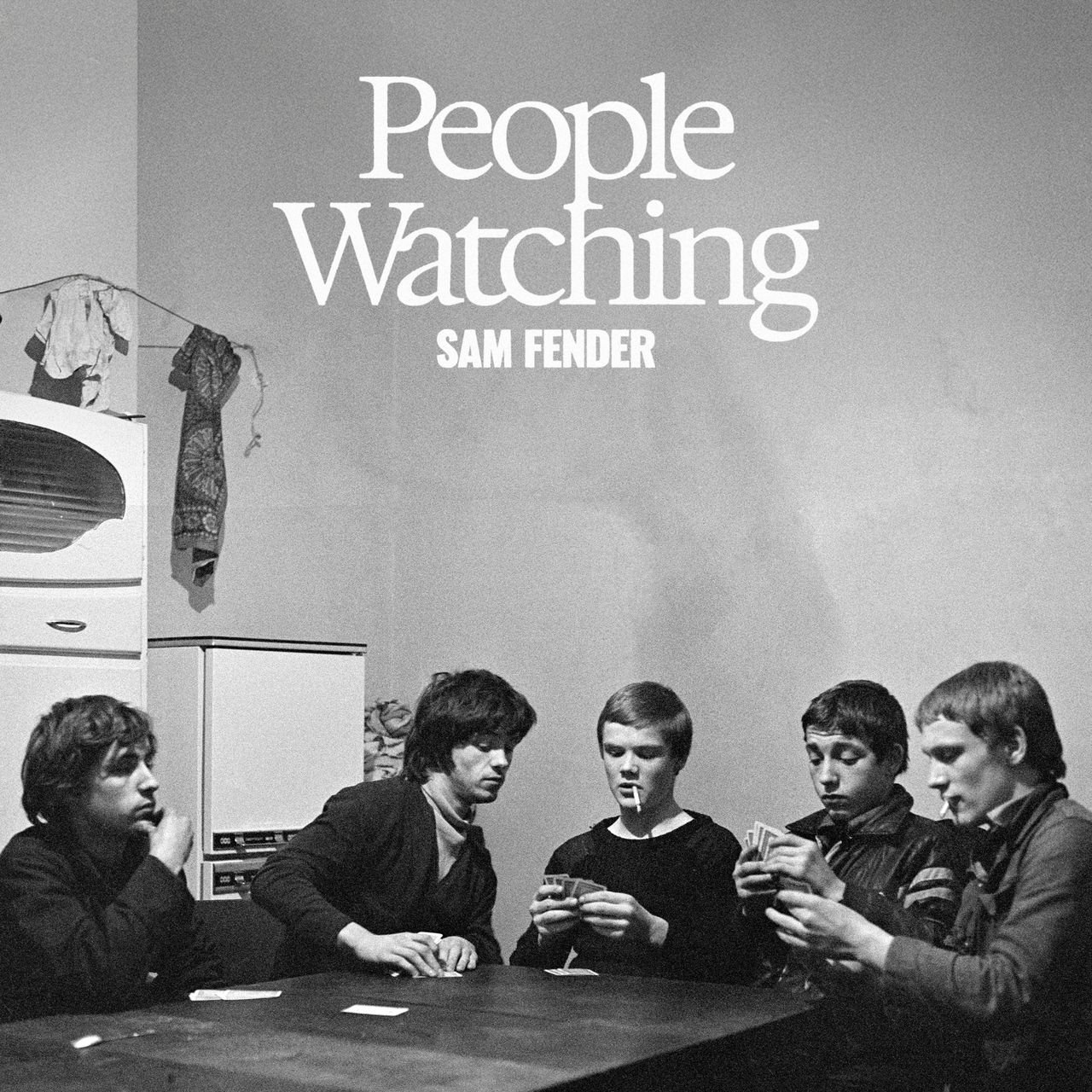Over the past five years, North Shields singer-songwriter Sam Fender became a partly unlikely, partly inevitable success story. His penchant for giving the indignities of working-class life in the UK an epic scale led the press to dub him the Geordie Springsteen, an appellation he leans into with heartland-motorik drumbeats and howling choruses. At his best, he pulls off songs like the coming-of-age anthem “Seventeen Going Under,” which had Reading Festival crowds singing along to lines like, “I see my mother/The DWP sees a number.” He’s big enough now that the British tabloid The Sun reported on sessions with Coldplay superproducer Markus Dravs like any other celebrity gossip. Upon returning from a massive stadium tour, Fender used the time off to make a more grounded album, albeit one helmed by the producer of Mylo Xyloto.
Where the title track of Fender’s first album imagined an apocalyptic war, People Watching depicts a more realistic slow collapse where everyone struggles to make ends meet. The final product sounds even loftier than its predecessors, with production sized to fit his increased fame. Dravs produces alongside War on Drugs’ Adam Granduciel, whose experience revitalizing half-formed memories of Springsteen songs dovetails with Dravs’ stadium-rock pedigree: Every other song features strings, backing vocals from musicians like bandmate Brooke Bentham, and the inevitable saxophone solo. The bright, almost piercing mix elevates faster rockers like “Chin Up” to immense proportions; of the midtempo songs, “Crumbling Empire” is unusually pretty, the shimmering acoustic strums and koto-like synths positively recalling the War on Drugs songs that recall Tunnel of Love.
In an effort to make everything sound as massive as possible, the team obscures some of Fender’s more pointed moments. On the title track, he returns to his hometown to see his elderly mentor, Annie Orwin, describing austerity conditions in the care home where visits her: “The place was fallin’ to bits/Understaffed and overruled by callous hands.” Those astute lyrics are followed by a roaring chorus where Fender battles a jaunty synth seemingly plopped in from Dire Straits’ “Walk of Life”; maybe it’s a hat-tip to a fellow Geordie musician, but it doesn’t fit with such a gravely serious song. Across the record, Fender’s often lost in the wall of sound even as he shouts at max volume.
His other Achilles’ heel is his tendency to write with a birds-eye view detachment that doesn’t play to his strengths: “Everybody here’s got something heavy,” “Somebody’s darling’s on the street tonight.” People Watching can be frustratingly literal, as if he’s actually observing passerby without considering their interiority. On “Something Heavy,” he touches on drugs, COVID, and suicide, weakly summing it all up with lines about “whittling away at this bag of rocks.” The lack of focus hampers Fender even when the messages are thought-provoking. There’s a genuinely powerful sentiment at the center of “Little Bit Closer” about finding enlightenment through empathy instead of religious dogma, yet it’s hard to hear past the overstuffed writing (“They break you in like a wild foal/Target the dole queue broken souls/I don’t disagree with everything they do”).
